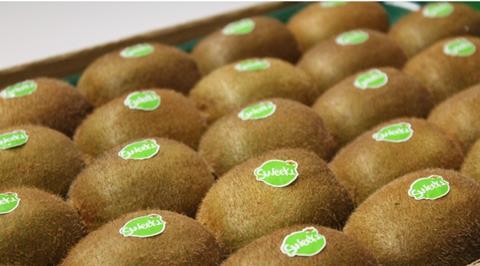
Italian consortium Origine Group says it expects its kiwifruit export business to thrive in the coming year as demand in Asia continues to grow.
According to the company, it sold around 4,000 tonnes of kiwifruit in the past 12 months, a notable result for a commercial venture in just its third season.
Most of these sales were in Asia, where its premium brand Sweeki now enjoys support from commercial partners in Hong Kong, Malaysia, China, Indonesia, Singapore and Taiwan.
åt this year’s Asia Fruit Logistica, the company will have a larger stand as part of CSO Italy’s EU-financed project to promote Italian fruit and vegetables.
“Our new membership has expanded to include nine leading groups from the Italian and Chilean fresh produce business,” comments managing director Alessandro Zampagna.
“Together, we have a turnover of more than €1bn and produce over 110,000 tonnes of kiwifruit. Our strategy in Asia is aimed at progressive growth, focusing on the Sweeki brand and green kiwifruit, not forgetting yellow kiwifruit and the development of other products such as pears.”
In recent months, the group has worked hard to expand in China. “We are convinced that China’s unique dimensions and characteristics require a distinct approach, so that we present ourselves to potential clients in the right way,” says Zampagna.
Origine’s growth is founded on clear guidelines: being present in the market all year round with Italian and Chilean product; maintaining consistently high product quality; investing in marketing and helping customers to give consumers a real value experience.
By selling its own members’ fruit, it guarantees total product traceability and quality distinguished by excellent aesthetic characteristics, high sugar content and a high level of dry matter content.
“In practice, we aim to be among the few players in the international kiwifruit market with sufficient volume, quality and marketing to be a preferred partner for retail chains in Asian countries, as well as for the major players in general markets,” Zampagna concludes.



